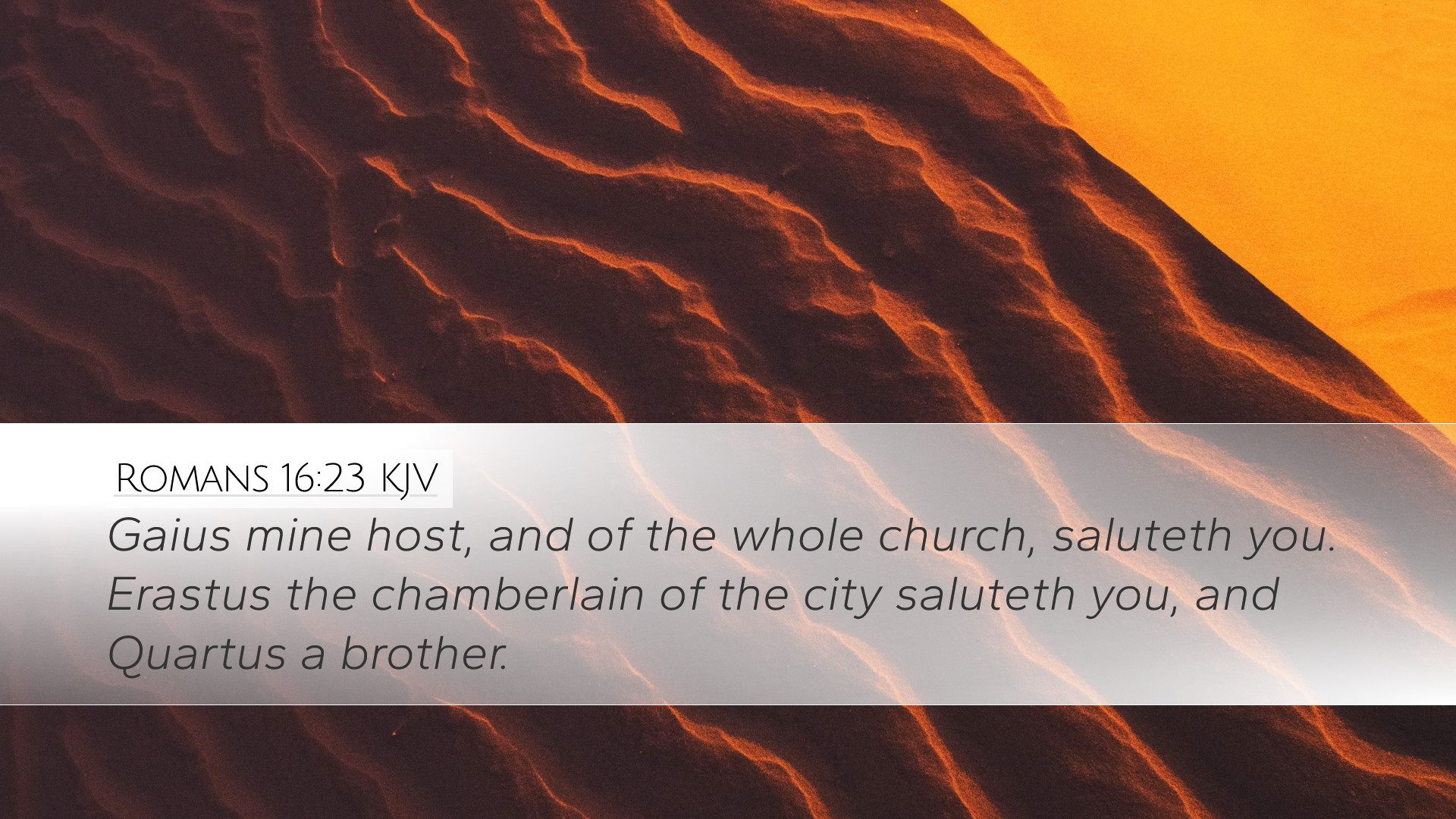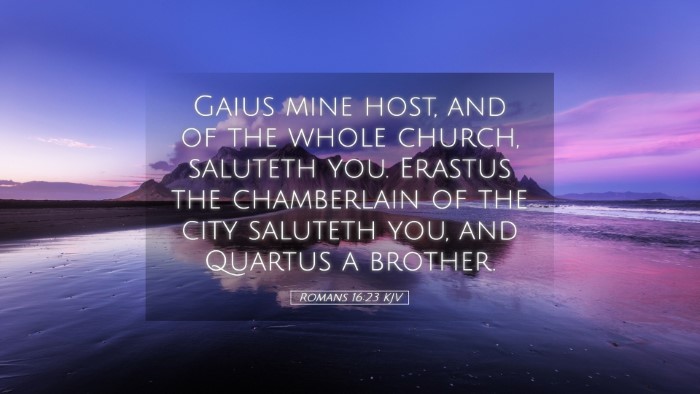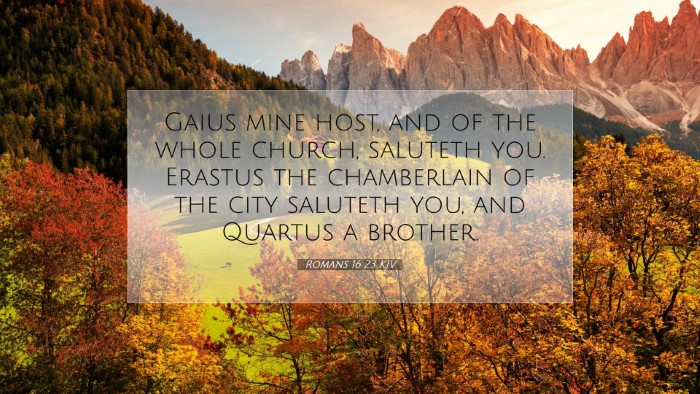Commentary on Romans 16:23
Verse Reference: Romans 16:23 - "Gaius, whose hospitality I and the whole church here enjoy, sends you his greetings. Erastus, who is the city’s director of public works, and our brother Quartus send you their greetings."
Introduction
The closing chapter of Romans serves as an important summary of Paul's relationships and the community that supported his ministry. In Romans 16:23, we see a glimpse of the hospitality, service, and unity found within the early Christian community. This verse specifically highlights Gaius, Erastus, and Quartus, all of whom played significant roles in the early church.
Contextual Background
Paul's letter to the Romans is a theological treatise addressing the nature of faith, righteousness, and salvation. However, as he concludes the letter, he transitions into a personal greeting and commendation of the people who were integral to his mission. It is noteworthy that the closing remarks of Paul often included names and relationships, emphasizing the communal aspect of Christian life.
Key Characters in the Verse
- Gaius: Known for his hospitality, he is likely the same Gaius who baptized Paul and was a significant figure in the Corinthian church. His welcoming spirit embodies the Christian principle of hospitality.
- Erastus: Described as the city’s director of public works, this indicates his influential position within the local government and shows that Christianity was making inroads into various levels of society.
- Quartus: Referred to as Paul’s brother, he likely played a supportive role in the ministry, further emphasizing the familial nature of the early church.
Theological Insights
This verse illustrates several theological principles relevant to theology and Christian practice:
- Hospitality: The emphasis on Gaius’ hospitality reminds believers of the importance of opening their homes and lives to others, signifying a larger expression of love within the Christian community.
- Community Support: The greetings sent by Erastus and Quartus highlight the support network surrounding Paul. This underscores the notion that the Church is not merely a collection of individuals, but a community that collaborates and supports one another in pursuit of the Gospel.
- Integration of Faith and Culture: Erastus’ position signifies that early Christians were becoming part of the social fabric, suggesting that faith should engage with broader societal contexts.
Commentary Highlights
Matthew Henry’s Perspective
Matthew Henry emphasizes the significance of Gaius as a model of hospitality, viewing it as a reflection of a heart inclined toward the needs of others. He notes that true hospitality goes beyond mere politeness and ventures into the realm of genuine kindness and generosity, connecting believers to the body of Christ.
Albert Barnes’ Insights
Albert Barnes discusses the importance of the greetings sent, which were intended to strengthen bonds among the early Christians. He sees the names mentioned as evidence of the diverse backgrounds and roles individuals played in the early church. Each name represents a unique contribution to the body of Christ, illustrating the variety of gifts that God bestows upon His people for the edification of the Church.
Adam Clarke’s Analysis
Adam Clarke notes that the mention of prominent societal figures like Erastus indicates that Christianity was beginning to penetrate influential sectors of society. He highlights the importance of recognizing and valuing the contributions of members from various social standings within the church, reinforcing the idea that the message of the Gospel transcends social class and status.
Practical Applications
The insights garnered from Romans 16:23 encourage contemporary believers, ministers, and scholars to reflect on the following:
- Practice Hospitality: Engage actively in welcoming and serving others within the church and broader community, modeling the love of Christ.
- Value Community: Recognize and celebrate the diverse roles individuals play within the Church, fostering a sense of unity and interdependence.
- Engage Societal Good: Engage in different community roles as a testament to the transformative power of faith in all aspects of life, including cultural and civic leadership.
Conclusion
Romans 16:23 encapsulates the essence of Christian fellowship, service, and the divine call to embrace others through hospitality. It serves as a reminder of the communal nature of the faith and the diverse roles believers hold in advancing the Gospel. As believers reflect on this passage, may they be encouraged to cultivate the same spirit of unity and service within their own communities, recognizing that each individual contributes to the grand narrative of God's redemptive plan.


